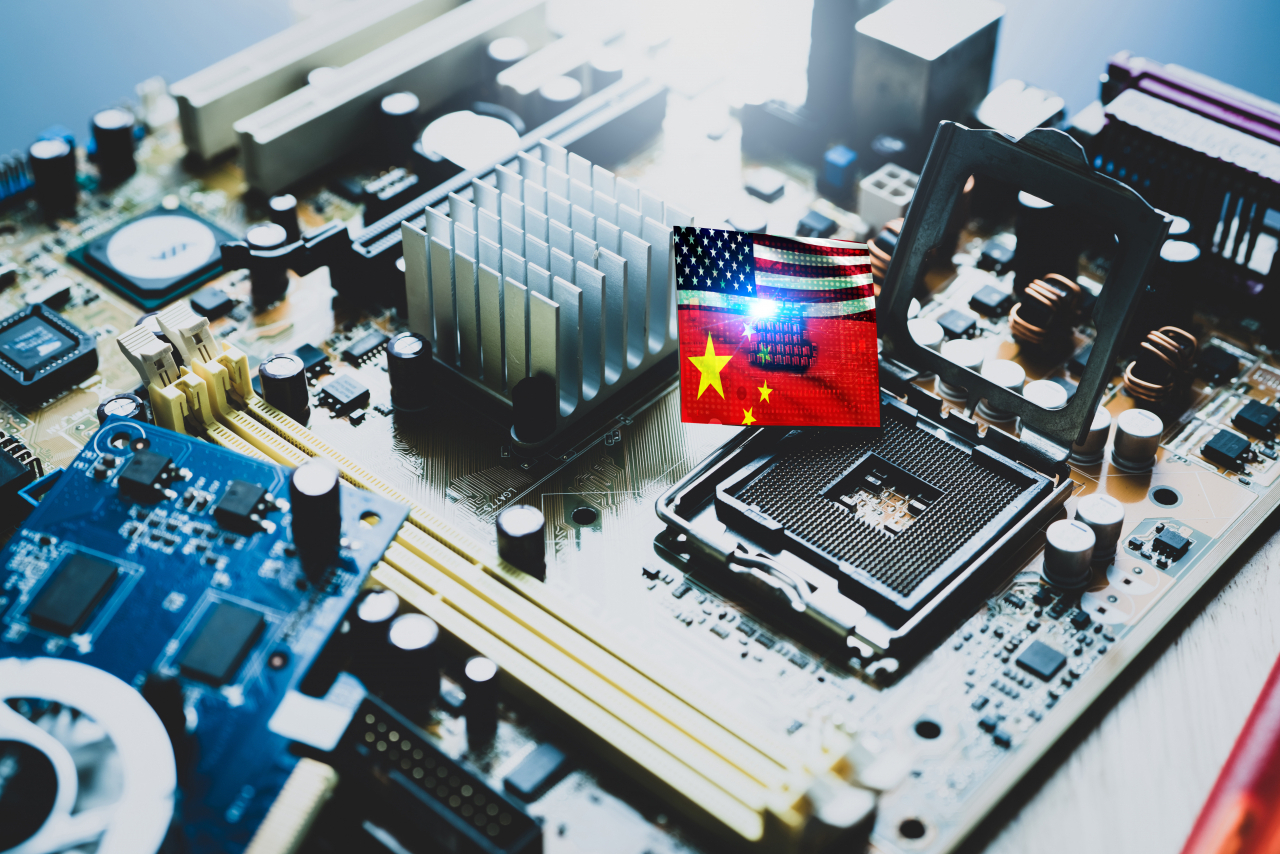Uncertainties remain for Samsung, SK after US eases export controls
By Jie Ye-eunPublished : Oct. 10, 2023 - 14:26

The decision by the US government to allow Samsung Electronics and SK hynix to supply chip equipment to their China factories indefinitely without separate approvals has given South Korean chipmakers some breathing room. Market watchers, however, believe that uncertainties in the semiconductor industry remain due to the ongoing US-China trade conflict.
Despite Washington’s indefinite waiver given to the world’s two biggest memory chipmakers, they still face limitations in expanding their semiconductor production capacity under the US CHIPS and Science Act’s guardrails. The US banning the export of extreme ultraviolet lithography equipment to China is another hurdle to overcome, according to market watchers on Tuesday.
Under the guardrails of the US CHIPS Act, chipmakers receiving subsidies are prohibited from the material expansion of chip manufacturing capacity for advanced facilities in "foreign countries of concern" by more than five percent in 10 years. The rule also prohibits the expansion of production capacity for legacy facilities beyond 10 percent.
“Samsung Electronics and SK hynix will have to reduce their production at their China plants in the mid- to long-term. … Although it is possible (for them) to convert and advance products to respond to market demand by upgrading some equipment under the US’ latest decision, there are still limits to expanding production capacity,” an industry watcher who wished to remain anonymous told The Korea Herald.
Another industry watcher raised the possibility of a new regulatory hurdle to be pulled out by the US government to win the tech race against China. Uncertainties and risk over large-scale facility upgrades and cutting-edge semiconductor production in China are expected to continue for a while, the industry source said.
Some market watchers also suggested that taking the lead in overwhelming technological superiority by setting a meticulous “super-gap strategy” is the only key for the two Korean chipmakers to maintain their global status.
The two tech giants’ outlook came a day after the presidential office’s announcement that the US government designated Samsung and SK’s chip factories in China as "verified end users.” In October last year, they received one-year licenses that allowed them to continue to operate in China, but the looming expiration of those licenses set off concerns in the domestic chip industry.
Samsung runs a NAND flash memory chip plant in Xian, China, and a chip packaging plant in Suzhou, while its smaller rival SK operates a DRAM manufacturing facility in Wuxi, a packaging facility in Chongqing and a NAND flash plant in Dalian. Both companies procure some of the supplies needed to operate their Chinese factories from the US.
Both Samsung and SK welcomed the US government’s move.
A Samsung Electronics official said the US decision has “significantly removed” uncertainty around the production of semiconductor manufacturing lines in China. The official also thanked both the US and Korean governments for close cooperation and vowed to ensure supply chain safety in the global chip industry.
“We believe the decision will contribute to the stabilization of the global semiconductor supply chain,” an SK hynix official said. “We will continue to abide by regulations and laws in the jurisdictions in which (the company) does business, and do its part for the development of the semiconductor industry."



















![[Today’s K-pop] Treasure to publish magazine for debut anniversary](http://res.heraldm.com/phpwas/restmb_idxmake.php?idx=642&simg=/content/image/2024/07/26/20240726050551_0.jpg&u=)